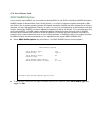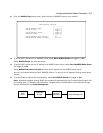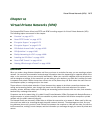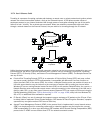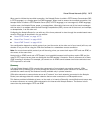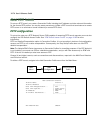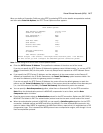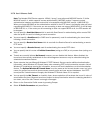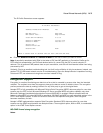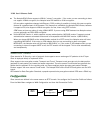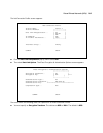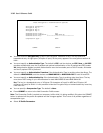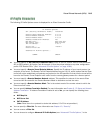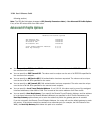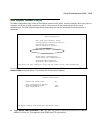10-78 User’s Reference Guide
Note: The Netopia R910 Router supports 128-bit (“strong”) encryption and MS-CHAP Version 2. Unlike
MS-CHAP version 1, which supports one-way authentication, MS-CHAP version 2 supports mutual
authentication between connected routers and is incompatible with MS-CHAP version 1 (MS-CHAP-V1).
When you choose MS-CHAP as the authentication method for the PPTP tunnel, the Netopia router will start
negotiating MS-CHAP-V2. If the router you are connecting to does not support MS-CHAP-V2, it will fall back
to MS-CHAP-V1, or, if the router you are connecting to does not support MPPE at all, the PPP session will
be dropped.
■ You can specify a Send Host Name which is used with Send Secret for authenticating with a remote PNS
when the profile is used for initiating a tunnel connection.
■ You must specify a Send Secret (the CHAP term for password), used for authenticating the tunnel when
initiating a tunnel connection.
■ You can specify a Receive Host Name which is used with the Receive Secret for authenticating a remote
PPTP client.
■ You must specify a Receive Secret, used for authenticating the remote PPTP client.
■ You can specify that this router will Initiate Connections (acting as a PAC) or only answer them (acting as a
PNS).
■ Tunnels are normally initiated On Demand; however, you can disable this feature. When disabled, the
tunnel must be manually established via the call management screens or may be scheduled using the
scheduled connections feature.
■ Some networks that use Microsoft Windows NT PPTP Network Servers require additional authentication
information, called Windows NT Domain Name, when answering PPTP tunnel connection requests. Not all
Windows NT installations require this information, since not all such installations use this authentication
feature. The Optional Windows NT Domain Name is not the same as the Internet domain name, but is the
name of a group of servers that share common security policy and user account databases. Your PPTP
tunnel partner’s administrator will supply this Windows NT Domain Name if it is required.
■ You can specify the Idle Timeout, an inactivity timer, whose expiration will terminate the tunnel. A value of
zero disables the timer. Because tunnels are subject to abrupt termination when the underlying datalink is
torn down, use of the Idle Timeout is strongly encouraged.
■ Return to the Connection Profile screen by pressing Escape.
■ Select IP Profile Parameters and press Return.



